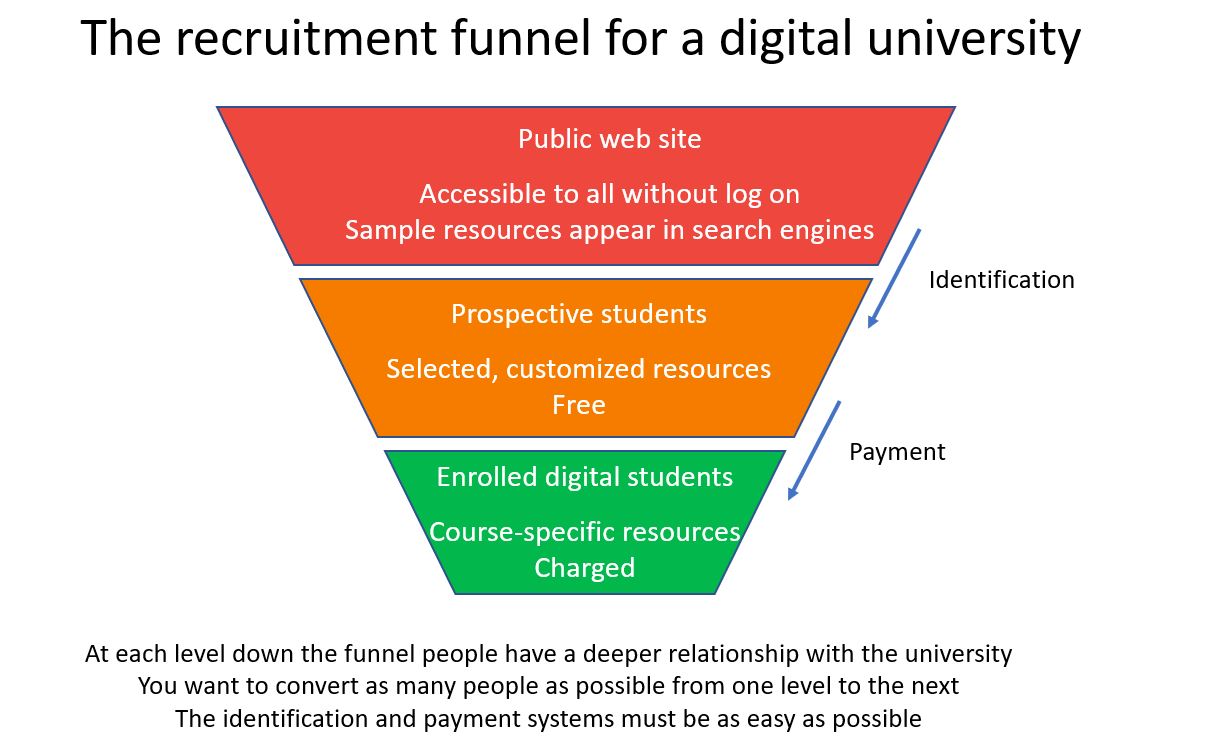Merchants know that every bit of friction in the checkout process reduces revenue. The first online retailers made customers create an account and remember a password before people could purchase. Now retailers use Google logons, Paypal or guest checkouts. Every improvement gets more people over the hump and increases sales.
In universities we don’t think about any of this. We assume that students are 18-22 years old and studying full time. We have a mental model of staff too: full-time too and working here for a few years. Most services within a university think only of the captive audience: people who have already made a significant commitment to get here. We think we can subject these people to annoying policies and sub-par experiences and get away with it. This will not be true for much longer.
How is the pandemic changing the way universities operate?
The coronavirus pandemic is changing views of how a university can operate and accelerating many trends which were already underway. In a networked world, students don’t need to be physically present. Forward-thinking universities are identifying new opportunities:
- At undergraduate level students will still want a traditional campus experience, but appreciate the flexibility of blended learning, online and on-campus combined.
- At postgraduate level there are opportunities for fully-online professional masters programmes. Older students have had a campus experience before and find that fully online studies can be combined more easily with their career and family life.
- There are new opportunities to offer online Continuing Professional Development, short, sub-degree length courses. When people needed to physically travel to campus there was little demand for these, but online people can take part at their convenience.
Universities are now permeable
The growth of professional education and short courses changes the nature of what it means to be a student. It changes the nature of a university. We used to think of staff and students as ‘our people’, ‘inside’ the university. We constructed systems accordingly, to serve the people inside.
Universities are now permeable. We should think of everyone the university interacts with as a potential student. We need to serve a completely new audience.
A static website, the same for every visitor, is no longer sufficient
You will entice prospective students by customising their experience and offering them a taste of the digital education on offer. Prospective students might interact with your website using a Facebook account, Google account, or any other identity they bring with them.

Digital education is now key
Some universities have offered online courses for years. The early movers used third party platforms to run MOOCs (Massive Open Online Courses). Most universities see MOOCs as marketing, a taster of the main event, not as education in itself.
Early movers handed over a lot of control to the third-party platforms. At the end of a free MOOC on FutureLearn, students receive an offer. Pay £199 and you can keep access for the next 12 months and get courses from other universities too. The platform owns the relationship with the students. When digital education was seen as something peripheral handing control to a third party may have been sensible.
Building a digital university
When digital is seen as core to education, universities will want tighter control over the relationship with students online. At a digital university, even students who have completed a short course are ‘alumni’, and you will want to maintain links with them.
To build a digital university you need a modern Identity Management system. You need easy logons for everyone who might interact with the organisation: prospective students, current students, alumni, and more. With Identity Management you can improve your marketing, customising the experience for prospective students. As you launch new, online courses you can control who has access to which resources.
Identity management is pivitol to a successful digital university
Identity management used to be seen as mere plumbing, a necessary cost. It is now strategically important, and key to increasing revenue. Now is a good time to provide the foundations for a modern university and maximise your digital recruitment.
About the author
Nick Skelton has worked within Higher Education IT for over 20 years. In 1998, while still a student at the University of Bristol, he founded ResNet, the first broadband Internet access for students in halls in the UK. He went on to be Head of IT Platforms at Bristol, and then to lead digital change programmes, helping organisations create digital-first, paper-light ways of working.
He is now an independent IT consultant, acting as a critical friend and experienced advisor for a number of universities and charities.
Twitter:@nick_skelton
W: https://www.linkedin.com/in/nickjskelton/

 Australia
Australia Canada
Canada LATAM
LATAM New Zealand
New Zealand UAE
UAE United States
United States








